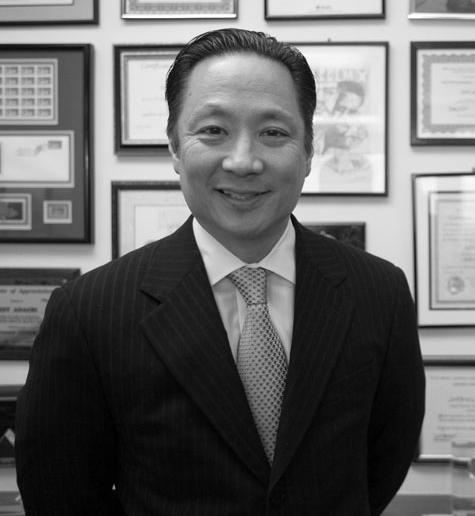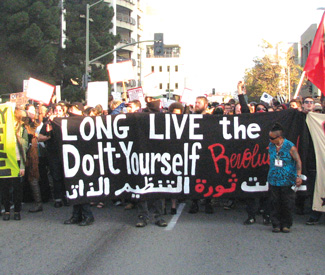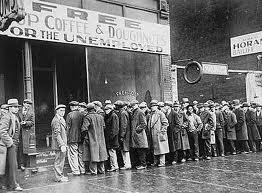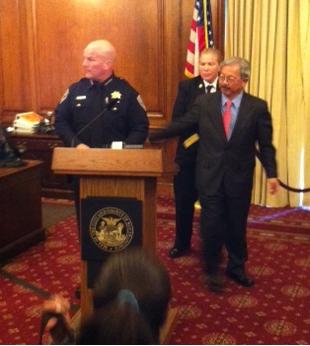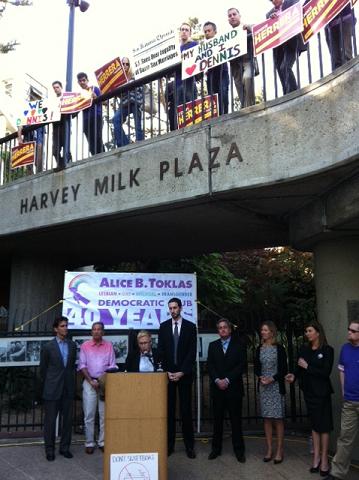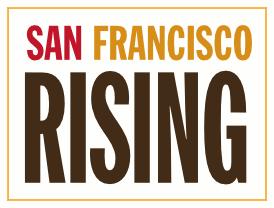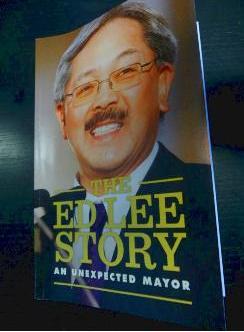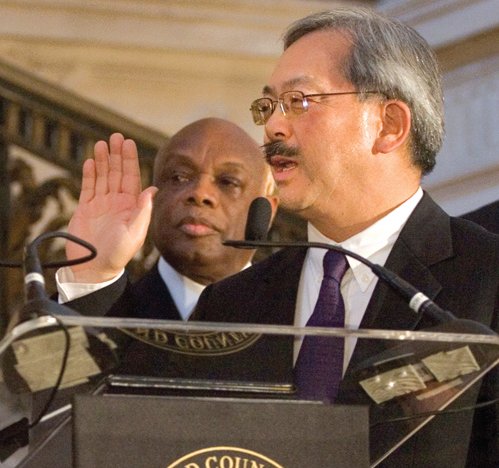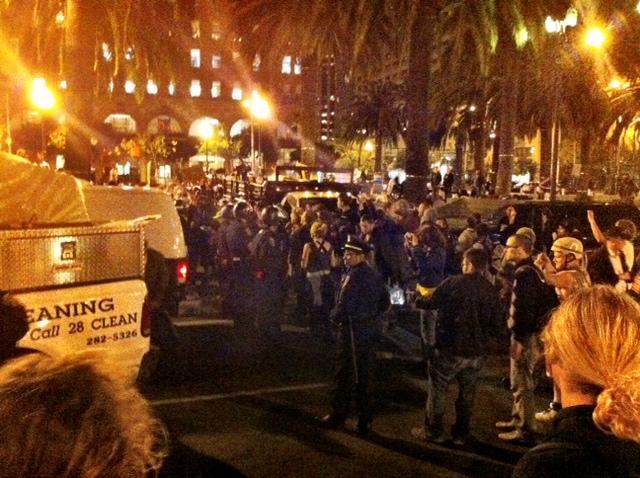By David Adler
I began the week a brooding and self-pitying writer, who was spending far too much time sucking on sour grapes until they were bitter raisins. I even went back and forth via email with an editor who had rejected one of my stories. This is not a good way to endear yourself with potential future patrons. But it had been far too long a time since I’d torched a bridge (and, in this case, I’m fairly certain that I burned the fucker to the ground), and in that sort of “I love the smell of napalm in the morning” empty machismo way, well, I still didn’t feel better. I felt like I do when I yell at the television while watching a Laker game, screaming at Andrew Bynum as if I were sitting courtside next to Jack Nicholson and sneaking out with him for blow during TV timeouts or just when we damn well wanted to. I was a crazy man. A loon in sweats and a Cal hoodie.
Determined to regain a semblance of human dignity, and equally committed to acquiring as little of it as necessary (the stuff is pricey, I don’t care what my therapist says), I got on the BART last Wednesday, October 5th, at the cavernous and exposed Millbrae station, the end of the peninsula line.
The electric train screeched and squealed and screamed north into the city, where a half hour later I emerged from the Embarcadero station on Market Street. A motley camp came into view, pitched on the sidewalk in front of the Federal Reserve building. It was the Occupy San Francisco Financial District camp. In solidarity with the original Occupy Wall Street movement, and the dozens other others cropping up daily, which defibrillates my long spasming liberal heart into a peaceful rhythm. The 99% in action. Could’ve been 1969. They had a kitchen, a library/bookstore, it was a little city of dissent, and the forces of everyday people were now gathering, enlarging the camp’s population, in anticipation of the noon march. The police were mostly in the background, talking with a few suits and ties out for a smoke, or lunch, who observed with amused smiles on their faces as they looked at the Occupy camp and the crowd. Stupid people, they seemed to be thinking, though I obviously can’t know. Perhaps they just didn’t get it. But they didn’t have to. It was getting itself just fine.
There were old and young, every race and color and creed. There were hippies in their seventies and students in their teens and twenties, nurses of all ages, punks and patriots of equal concern, workers and laborers and normal folkies of every stripe and sandal. Yes there was a progressive and lefty and outsider’s insider vibe to the signs and the chants. Banks got BAILED out, we got SOLD out!! Banks got BAILED out, we got SOLD out!! We ARE the 99 percent!! We ARE the 99 percent!! But that’s the whole friggin’ point. There was a tiny dog, a Puggle the owner told me, who was wearing a sign that said “Justice for the Little Guys.” A woman who looked to be on lunch break held a small sign aloft: “I’m here because I can’t afford a lobbyist.” End The Fed. Tax the Rich. So many more, so varied. And my favorite, which was a bit longer:
The Amercian Paradox:
Unionized Public Employees
Cracking Down on Those
Seeking to Save Their Jobs & Pensions
Now, I may not agree with everything and everyone in this movement, not even close, but the fetid financial powercore as the center of this mass and evolving dissent? Bring it on. My wife works for a good little bank, worked for another one in Southern California that was shut down by regulators and sold off under dubious circumstances, and those kinds of community institutions have been run over by the too-big-too-fail Gods. I loved it, in other words. And we marched. The official count, I read, was 800. Horseshit. No way. I couldn’t give an exact number, but I know it was many more than that paltry figure. Cabbies were honking at us, but in a rhythm, a beat that said they were with us and not annoyed. I carried my sign, given by a representative of the nurse’s union, because their cause really resonates with me: Tax Wall Street Transactions – Heal America. I waved it for a few miles, but my arms never got sore. The spirit was grand and vital and patriotic and American. We were engaged in the only thing freedom really means. The right to say no to the powers that be, to protest without the fear of unjust reprisal.
And there’s the rub.
After marching, I had to hop the train home quickly and pick up my son from school. I rode south toward Millbrae, while behind me in the city the ruckus remained and grew and settled back into camp for the night.
The night.
Always the best time for the authorities to do their dirty work. The next morning, after being told by my wife that on the news they reported the police had busted up the Occupy camp, I watched the videos that had already been posted online. And there they were, those unionized public employees, heading down the street in riot gear toward the Occupy Camp. The irony is too rich. And disturbing. They came in riot gear, apparently, to protect themselves from a bunch of barefoot hippies and thread-thin vegan rebels. The police confiscated a lot of the stuff from camp, ordering the reluctant Department of Public Works employees to carry out the deed, without giving the kids time enough to gather it themselves. Then the police got rough, nightsticks into ribs and arms and thighs. All of it, needless to say, completely unnecessary. The only thing freedom means, and that’s what it gets you. In America. Didn’t those police want to set a better example, to be better than the police and soldiers we see all over the world stomping on their people’s hopes? I guess not. They’ll say it was a safety issue, a private property issue, that it was this or that, but none of it required riot gear and physical violence at all. Disgraceful and depressing.
On Thursday evening, the 6th, on the Occupy SF website I saw that they had put out a call for anyone with a car or truck to help them get their stuff back. It had been taken to the Department of Public Works yard off Bayshore. Friday morning, as I sat staring at my computer trying to write, I decided to do something to help these kids out. I got in my Prius and headed into the city, to the DPW yard. On the way there, in my idealistic mind (at least I still have one at my age), I envisioned a huge caravan of progressive minded people arriving on the scene in solidarity, ready to help get this stuff back to whom it rightfully belonged. I wished. But when I got there a little after nine, I was the only one there. Soon, however, a tiny old Japanese hatchback rumbled past with what I took to be three activists of various ages riding inside. They had to be Occupy people, I thought. But they drove past, appearing lost, and turned out of sight at the far corner. Hmm. In a few seconds, however, they reappeared, the car pulling to a stop at the red curb where I was standing at what looked like the front door to the DPW offices.
“Are you with Occupy?” I asked the bearded young man in the passenger seat, who had a thick mane of wavy dark hair pulled back into a long ponytail.
Yes, they all answered, who are you? Where do we park? The driver was in her sixties, clad in black I noticed, with long gray hair. The passenger in the back seat was a younger gal, heavy, a punk lesbian vibe about her, with her short cropped hair painted red, blonde, and blue.
“I’m just a guy,” I told them. “Just someone who showed up to help you out.” The young gal in the back looked at me oddly, with an expression of curious surprise, then pointed at me slowly, like a b-ball teammate acknowledging a sweet assist, as if thinking, “Yes, even the fake hippies in the Adidas gear are with us!”
“And you probably want to park anywhere you can,” I continued. “I just got lucky across the street there.”
Just then we got the attention of a DPW worker inside the glass door. A big African-American guy in a yellow work vest, he asked if we were from Occupy and looking to get our stuff back. He gladly directed us where to pull our cars, and he told us he’d instruct someone to meet us back there. This is when I learned, from the kid with the ponytail, that the DPW workers were not happy about having to obey the police and confiscate the protesters’ stuff, their own union supporting the Occupy movement. So the courtesy and patience of all these DPW workers was no surprise.
A few minutes later, as the four of us waited on the sidewalk, I realized I’d forgotten their names, or if we’d exchanged them at all. I thought we had, but I’m terrible with names, which I told the young guy with the beard and ponytail.
“Chris,” he replied to my re-query. “You’re Dave, right?”
I felt guilty that he remembered and I didn’t.
“I’m Diana,” the younger gal introduced herself, “And I really have to pee. You think you guys could form a perimeter here for me so I can go in the bushes?”
I suggested she go behind the black van that was completely blocking some bushes about twenty feet away. She nodded, good idea, and walked over to relieve herself.
“I’m Dagny,” the older woman said as she sat on the curb and lit a cigarette. “And the name’s not from that useless fucking Ayn Rand book, thank you very much.” Dagny seemed an experienced San Francisco hellraiser, and I would discover that she had little time for taking any shit or wasting any time.
Returning from her bathroom bivouac, Diana was hopping mad. “You’ll have to excuse me, I really got a fire in me today, after what went down last night. I may be young, but I can get stuff done. And today we’re going to.”
I told her I understood the fire she had in her. When I asked how old she was, she replied twenty-two. Exactly half my age, I told her. She thought for a second and mouthed forty-four, barely audible enough to be heard. Just then another DPW worker showed up and told us to follow him in our cars. He led us through the sprawling yard, crowded with trucks and tankers and service vehicles of every odd variety and size, many in the repair bays, where workers crawled under and around and atop them like Lilliputians upon Gulliver.
We finally made it to a parking area, filled with more trucks, and with a storage area surrounded by a patchwork chain link fence. The DPW guy unlocked the fence gate and led us in. There was junk covered in blue tarps on both sides, with a cleared path in between. Everything on the left, he told us, was homeless stuff, which made sense once we saw how many bicycles and shopping carts poked out from under the tarps. On the right side was the Occupy SF stuff. It had rained the previous night, so it was a wet mess of backpacks and chairs and tarps and toolboxes, storage containers and tents and camp stoves, furniture and clothes and food. A lot of food. They’d been living there, after all. Some of it had spoiled, some was still good. Chris and Diana were kind of overwhelmed at first, but Dagny just laid it down: let’s just get all the food out first, and figure out what’s still good to keep, and what’s not, and we’ll put the good stuff here, and the bad stuff goes in this trash bag. Wet clothes over there, office stuff here, tarps in a pile, Dagny continued like a former flower-child field general, until we were moving with as swift an organization as possible under the shorthanded circumstances.
A half-hour later my car had been designated as the de-facto catering truck. It was full of all the canned food, as well as the fresh stuff that hadn’t gone bad. Bread and bagels that stayed dry, tea and coffee, oats and nuts, produce that included a large crate of oranges and a box full of various types of squash.
We had my Prius packed tight and Dagny’s hatchback full to the brim, with at least several more trips worth ahead of us, if no other vehicles showed up to help with the rest. More importantly, we had no place to go. Diana made a harried phone call. Then Chris made another. There was supposed to be a storage space rented, but no one could seem to figure out who to contact to find out where it was. It was then that a pickup truck and an SUV showed up. Cool, now we could at least get the rest of the stuff loaded, those two trucks should be big enough to hold it all. The truck and SUV, as well, brought four or five other people. A guy about my age from Marin, who had picked up a gal from the city, and three younger guys in their early twenties (or so I assumed). These threee were thin and vegan and dressed in clothes that looked like they’d been living outside for a couple of weeks. When I introduced myself to one of them, he told me that I could call him “Just One.” After a few moments, I got it. A leaderless movement. He was just one. There was something poetic and beautiful about it. Just One seemed a tad wary of me at first, but by the end of the day was thanking me profusely.
“I really appreciate it, man. I was worried I was gonna be the only mule out here.”
With more hands to help and more trucks to load, Just One and his friends started to voice their own concerns about how we should be separating the stuff. They started to disagree among each other while trying to come to a community decision. Dagny took charge once again, overriding the consensus confusion.
“We’re packing it all up and just taking it to this damn storage space, if anyone can figure out where the hell it is. Then we’ll deal with it all there. These people who volunteered their cars and trucks have to get other places, so we need to waste as little of their time as possible.”
Focused by a veteran of many movements, we got the remaining stuff loaded into the trucks, cramming in furniture and containers and everything we could that seemed worth saving. Dagny had decided to take all the wet clothes that looked like they could be salvaged and washed. She told the kids that she’d bring it clean and dry to camp the next day. She even told Chris that she was going to lend him her car for the rest of the day, all he needed to do was drop her off and pick her up from a class she teaches. Lefty teamwork gave us an energizing rush. Unity flowed like fine, and rare, wine. On the last sweep of the space, Chris found the handmade red and black OccupySF flag, that had flown at the campsite. It was under a tarp and was still attached to the end of its long bamboo pole, having survived relatively undamaged.
“Yes!” Chris declared, holding it up. “The flag survived!” The others shared his small victory enthusiasm. “We’ll take it with us,” he told me.
Colors ready to fly again, trucks and cars loaded with recovered possessions, we nonetheless continued to wait. No one, still, could figure out where this storage space was. A few people made a few more harried phone calls to certain people, not leaders of course, but people in the movement who might know who else in the movement would know where to send us.
“Quite a lovely clusterfuck” Dagny said to me. “And what the hell am I thinking? I’m missing prime smoking time here.”
As the guy from Marin, who brought the truck, finally managed to pin down the location of the storage space, I told Diana she could ride over with me, I had a passenger seat free. She said okay, but didn’t seem too enthused. As directions to the storage space were given out, Diana hung out next to the passenger door of Dagny’s car.
“I think she’d be more comfortable riding with you,” I said in Dagny’s ear.
“I think you’re right. Take Chris and we’ll meet you there. It’s easy to find, right down 3rd.”
In the Prius and on the way, Chris told me he’d been living at the camp since he got into San Francisco. He was raised in New Jersey, then he spent some time in Florida, which he hated. “So I just took off west, ended up here, and I don’t think I’ll ever leave. I just love the whole spirit here.” I told him that I’d just moved to the bay area, with my wife and son, from San Diego, and that I’d spent my whole live in Southern California until we moved up here. When he asked what I did, I talked for a few minutes about being a Hollywood dropout (though I made some good money for a brief time), and that I was now trying to write some fiction. After I described what made SoCal and NoCal seem like two separate states, Chris repeated his mantra. “I just love it here.”
“Dagny’s a character,” I said after a moment.
“Oh man, she’s hilarious, you shoulda heard the stuff she was saying on the way over here.”
I asked him about Wednesday night, when the police in riot gear had busted up the Occupy camp in front of The Fed..
“They were the instigators of the violence, they really were,” he said. “I mean a couple people yelled some stupid stuff, but we weren’t violent at all, and they just come at you with those batons. I got nice lump right here on my arm.”
I said I’d heard that some of the police didn’t want anything to do with it.
“Yeah, there were some who wouldn’t even look at you, and you knew they were just torn and didn’t want to be there. And the female cops, as usual, were fine.”
“Never had a problem with a woman in uniform,” I told him. “Never even that cop attitude you get if you have the nerve to politely question them.”
He agreed, his eyes looking for the street off Third where we’d find the storage place.
“Here it is!”
I made a quick sharp right, and I heard several oranges spill out of the crate and juggle down onto the floor.
Pulling into the parking lot, Chris and I realized everyone had made it there before us, even though we’d left pretty much first. “That’s how you know we haven’t been in the city long,” he smiled, getting out to help unload.
Most of the food packed into my car, it turned out, was headed for a charity called Food Not Bombs. I was going to drive it over there, a task Dagny had assigned to me, but she couldn’t get Food Not Bombs to pick up their phone, and no one knew where it was.
“They kind of operate under the radar,” Just One told us. “They really don’t want the authorities to know where they are, so they kind of move around.”
I was stuck with a carload of provisions with no charity to feed. Damn. As my time got short, Dagny saved me again and told the kids that they should unload the food from my car, and set it aside with everything else that wasn’t going to stay at the storage space.
“We’ll put it all into one truck, keep it as organized as we can.”
Good call. I pulled out the bamboo pole with the OccupySF flag on it. I waved it around for them, and everyone gave a cheer. “Let it fly, man!” Chris exhorted. I flew it from the Prius for my last few minutes there.
Chris and I exchanged cell phone digits, and I told him to keep me in mind if they ever needed a car during the week, that mornings and early afternoons are when I’m mostly free. We shook hands, and he thanked me again, so genuinely, as did everyone else.
I drove away, got onto 101 south and headed back to Millbrae. And, in my swelling head, I heard the line from Jack Kerouac’s “October in the Railroad Earth”: …and here’s all these Millbrae and San Carlos neat-necktied producers and commuters of America and Steel civilization rushing by with San Francisco Chronicles and green Call-Bulletins not even enough time to be disdainful…
I cherish those words: …not even enough time to be disdainful.
So many critics fit that suit perfectly. It offends them simply to take the time to disdain it. It bothers them to even bother. The people, many young, who started this Occupy movement and continue it, deserve much better, as does the entire nation. These free and peaceful Americans have made the time to do much more than disdain or merely talk. For now, until who knows when, they have made it their lives to act.
The positive vibes from that day must have carried over, because on Sunday I pulled off another online poker miracle. (I say another because last year I turned thin air, literally nothing but a few bucks won in a free tournament, into more than ten grand in about four months. All of it ended up in the bank, thankfully.)
This was an equally daunting assignment. Two thousand and fifty-six players were entered in the tournament on ClubWPT dot com. It was first place or nothing.
Four hours later, I had beaten them all.
And I had won the grand prize: a $3500 Main Event seat at the World Poker Tour Jacksonville event in November, plus another $1000 in travel money.
Now what the hell do I do? I never play live. And the tournament is at a dog track, of all places. Greyhound Rescue, condemn me now.
But I could win a bundle. Or nothing, in which case I’m still on the hook for taxes on this $4500 package.
Wall Street has their casino, albeit a much more rigged one, and I have mine. Stay tuned.


